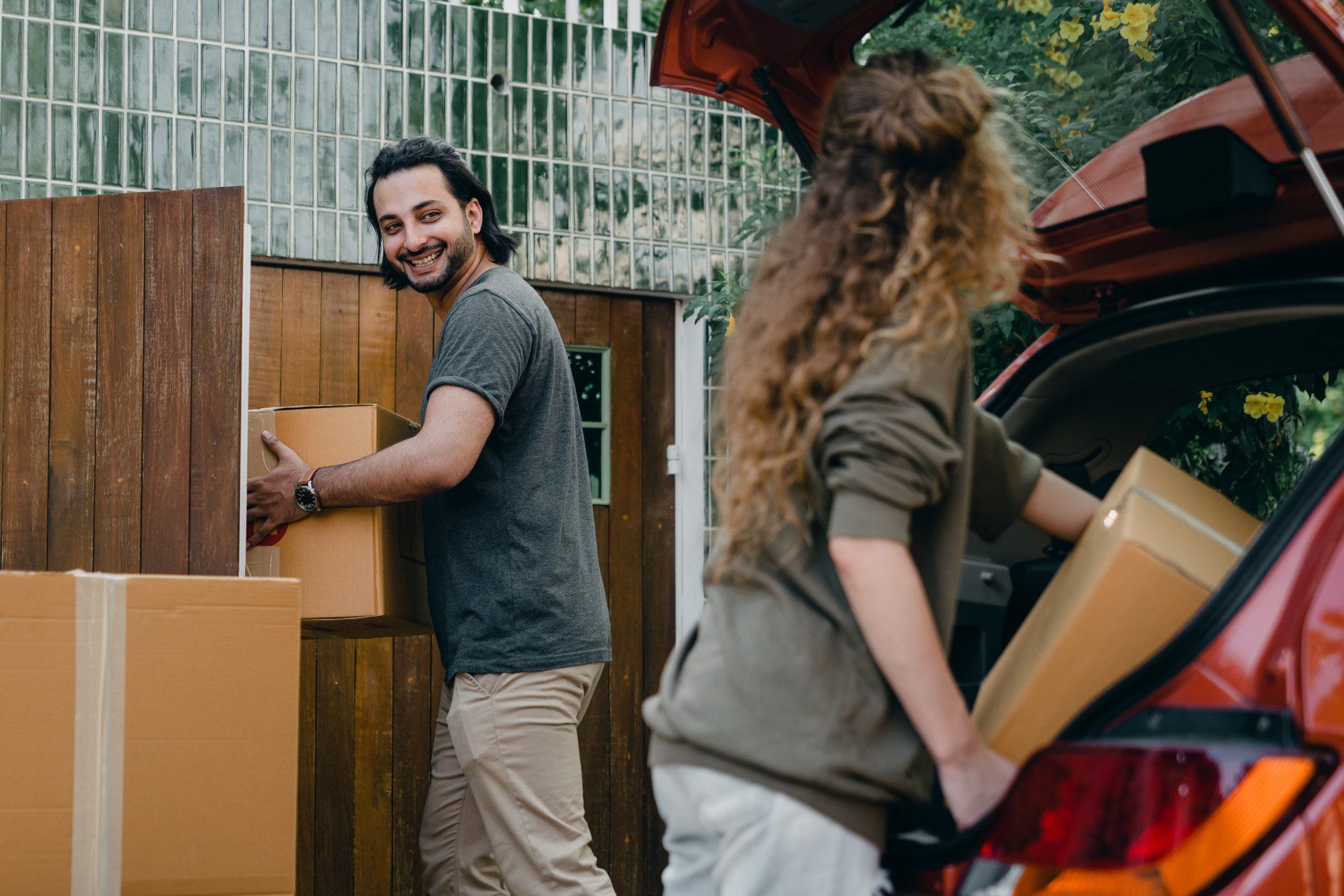Long Distance Moving Packages Starting @ $1899!
The Hidden Costs Of
Long Distance Moving And How To Avoid Them
Moving from one place to another can be likened to a long and winding road. It’s an exciting journey, but often times there are hidden costs lurking in the shadows that you don't anticipate until it's too late. When it comes to long distance moves, these unexpected expenses can sometimes put a strain on your budget and leave you feeling overwhelmed. This article will explore the hidden costs of long distance moving, as well as how to avoid them so that you can ensure a smooth transition without any financial surprises.
The first step in avoiding unforeseen moving costs is knowing what they might look like. Common fees associated with long-distance relocations include transportation charges, packing services, storage fees, insurance and taxes. These are just some examples of potential additional expenditures; depending on your circumstances, there could be more down the line.
By being aware of all the possible added costs ahead of time and planning accordingly, you'll have peace of mind when preparing for your big move. Read on to learn more about how understanding the hidden costs of long distance moving--and strategies for circumventing them--can help you save money while still making sure everything goes off without a hitch!

Gather Moving Estimates
Gathering moving estimates is an important first step when planning a long-distance move. Knowing how much you’ll spend on the relocation in advance can help you avoid any unpleasant surprises or hidden costs. To get accurate estimates, it’s best to contact several professional movers and compare their services and prices. Ask about additional fees for packing supplies, storage units, insurance premiums and other extras that may not be included in the initial quote. You should also inquire about discounts available for seniors, veterans and members of certain organizations.
When gathering quotes from different companies, make sure they all cover the same items so you can make an apples-to-apples comparison based only on price. Be prepared to provide as many details as possible regarding your planned move – such as number of rooms involved, distance of travel between homes, estimated weight of goods being transported etc. This information will ensure that each company provides you with an accurate estimate before starting work.
It's wise to shop around and find out what kind of deals are available before committing to any one service provider. Always read the contract thoroughly before signing anything; if something doesn't seem right or isn't clear enough don't hesitate to ask questions until you're 100% satisfied with everything written down there! With careful research and due diligence, you'll be able to save money while still getting quality results from a reputable mover.
Planning Ahead For Unforeseen Expenses
When it comes to long distance moving, planning ahead is key. Unforeseen expenses can quickly add up if you don't take the time to do your research and budget accordingly. That's why it's important to plan for potential hidden costs that could arise during a move.
First, be sure to account for any extra fees or ancillary services associated with your move. These may include packing materials, storage units, shuttle services, parking permits and more. It's also wise to factor in taxes on items such as fuel surcharges, tolls or even lodging if needed along the way. Don't forget about the possibility of needing help from professional movers - their labor charges could cost significantly more than expected depending on how far away you are moving.
It pays off to consider every possible expense when preparing for a long distance move so you aren't caught off guard by surprise bills down the line. Make sure you understand all terms of service before signing any contracts and ask questions if something doesn't seem right. Doing this will ensure that your relocation goes as smoothly as possible without having to worry about additional costs cropping up at the end of it all.
Research Fuel Costs And Vehicle Regulations
When preparing for a long-distance move, it's important to look ahead to the costs associated with fuel and vehicle regulations. Researching these expenses can help you accurately budget your move and avoid any unwelcome surprises down the road.
When researching fuel costs, be sure to consider both local prices in your current location as well as those at your destination. Fuel economy also plays a factor when calculating how much money you'll need for gas throughout the course of the trip. The more efficient your vehicle is, the less money spent on gas during the journey. Additionally, there may be taxes or fees associated with bringing a car into certain states that could effect total cost of ownership over time.
Vehicle regulations should also be taken into account before making any big moves. Different states have different laws regarding window tinting, license plates, headlights/taillights, emissions testing and inspections so make sure you know what to expect where you're headed. Understanding these requirements can save you from having to pay expensive fines upon arriving in your new home state.
Planning ahead for all of these factors can take some of the stress out of moving day by ensuring everything goes smoothly (and legally). Taking care of research beforehand will give you peace of mind knowing that nothing has been overlooked when it comes to taking care of business on the open road!
Consider Options For Transporting Large Items
Transporting large items across long distances can be a major challenge. As such, it is important to consider all available options before making a final decision. Utilizing the power of an extended metaphor, this task could be likened to a jigsaw puzzle: you must have all the pieces in order for the full picture to take shape.
When considering how best to transport larger objects, there are several factors that need to be taken into account. First and foremost is cost; if possible, try to find ways to reduce expenses without sacrificing quality or safety standards. Additionally, research should be done on vehicle regulations - some states may have restrictions on size or weight of items being transported. Then one must decide which methods would suit their needs most effectively: renting a moving truck or trailer? Hiring professional movers? Shipping through freight companies? Each option has its own advantages and drawbacks that must be weighed carefully against one's budget and timeline.
The good news is that with proper planning and foresight, it is still possible to move things securely and economically even over great distances. By taking the time to understand your transportation requirements ahead of time, you can create a comprehensive plan that includes finding the right provider at the right price while avoiding any additional hidden costs along the way.
Understand The Cost Of Insurance
It's often said that nothing in life is free and this rings true when it comes to long distance moving. Insurance costs can add up quickly and catch you off guard if you're not prepared. Understanding the cost of insurance is key to avoiding any unwanted surprises during your move.
Without adequate protection, you may find yourself out of pocket for expensive repair bills or replacements should something go wrong with the items in transit. This can be a real kick in the teeth after investing time and money into organising your relocation - so make sure it doesn't happen by researching before committing.
Insurance policies vary from company to company but most allow for coverage against theft, accidental damage, fire and water damage. It pays to know what kind of policy works best for you depending on the value of goods being moved – as well as whether you need nationwide or international coverage. Doing your homework here will prove invaluable in helping keep hidden costs at bay!
Factor In Lodging Expenses
Moving can be a daunting task - especially when it's long distance. As the saying goes, 'Nothing worth doing is ever easy.' And while it's not impossible to move without breaking the bank, there are hidden costs that need to be taken into account before you start packing your bags. One such cost is lodging expenses – and here's what you need to know about them.
It’s important to factor in any accommodation fees for yourself or movers along the way. This could include hotel rooms, Airbnb rentals, or even just eating out at restaurants if you're on the road for an extended period of time. If traveling by car and having someone else drive part of the way with you, make sure they have their own place to sleep too! It would be wise to keep some extra money aside specifically for this purpose as well – because no matter how prepared you think you are something unexpected may arise during your travels which will require accommodations.
And remember: always double-check all rates ahead of time so that you understand exactly how much each leg of your journey will cost in terms of overnight stays. That way, you'll prevent surprises from popping up down the line and avoid unnecessary stress caused by budget overruns due to miscalculations. Doing this research beforehand can help ensure that your entire relocation proceeds smoothly and within your budgeted parameters.
Budget For Packing Supplies
A penny saved is a penny earned. When it comes to long distance moving, budgeting for packing supplies may be the last thing on your mind, but avoiding this cost can save you money in the end. Packing materials like boxes, tape, markers and bubble wrap add up quickly when preparing for a move.
To keep costs low while still making sure all of your items are securely packed away during transport, consider reusing old containers or asking friends and family if they have any spare boxes lying around. If possible, avoid buying new packing supplies altogether by using towels and blankets to cushion fragile items instead of bubble wrap or foam peanuts.
Be sure to check with the movers before hand about what types of materials they provide and whether there will be an additional charge for them. Knowing these details beforehand can help you better prepare for the big day without breaking the bank!
Strategize For Moving During Peak Season
It's no secret that long distance moving can be expensive, but the hidden costs of peak season moving can often catch people off guard. While it may seem like a good idea to move during this time because it's convenient for your schedule, you should take the potential added expenses into consideration.
Strategizing for peak season is essential if you want to save money on your move. Take some time to research when certain regions are expecting their busiest times and plan around those periods accordingly. You could also consider hiring a professional mover who will have experience in navigating these busy seasons, or even booking an alternative form of transportation such as taking a train or flying with your belongings instead.
Some unexpected expenses associated with peak season include higher rates from movers due to increased demand, or extra fees charged by airlines if your items end up being too large or heavy for the plane's luggage allowance limits; however, there are ways to prepare and minimize these costs. Research cheaper options within your budget range and make sure to book ahead of time so that you're able to secure more competitive prices.
Consider Additional Fees And Taxes
Moving is a bit like navigating a river. Just when you think the current has taken you to relatively calmer waters, something unexpected pops up - like an additional fee or tax that can really throw off your budget.
Just as it's important to keep an eye out and recognize the obstacles ahead in a river, so too must we be aware of any extra costs associated with our long distance move. While there are certain taxes and fees which cannot be avoided, being aware of them before hand is key for making sure you don't get hit with hidden charges down the road.
For instance, some states levy taxes on goods moving across their borders, while other local governments have requirements such as registering your vehicle if traveling through their area. It may also be necessary to purchase insurance coverage if you're using professional movers or renting a truck, plus paying for fuel if you'll need to drive a long way. Being mindful of these potential costs will ensure that all bases are covered before setting off on your adventure.
Allow For Unexpected Delays
It's estimated that over 23 million people move each year in the US, and for many of them, long distance moving is an inevitable part of the process. Unfortunately, this type of relocation can come with hidden costs due to unexpected delays or other issues. Here are some tips on how to avoid these additional fees.
When it comes to planning a long-distance move, allowing for unforeseen delays should be at the top of your list. Studies show that nearly 30% of all moves are delayed by more than two days (1). While you may have planned ahead and found reliable movers, there could still be a number of different factors causing a delay along the way. For example, traffic congestion, bad weather conditions and mechanical problems can all affect your timeline.
As such, it’s important to plan accordingly and build extra time into your schedule when possible. You might also want to look into storage options if need be so you don't end up paying extra costs due to late arrival times at your destination. Additionally, consider using GPS trackers as another precautionary measure – they're great for keeping tabs on where all your belongings are located during transit.
By taking these steps beforehand and being prepared for any potential hiccups along the way, you'll be able to make sure that no additional fees arise from unexpected delays while relocating across country.
Understand the Unexpected Cost of Long Distance Moving
It is important for movers to understand the hidden costs of long distance moving so that they can avoid them as much as possible. By taking the time to research fuel costs, vehicle regulations, packing supplies, insurance, additional fees and taxes, peak season rates, and potential delays – you will be better equipped to make an informed decision about your move.
My suggestion is to create a budget with realistic expectations by doing your due diligence when gathering estimates from different companies and planning ahead for any unforeseen expenses that may arise. With careful planning and strategizing, you can minimize the extra financial burden associated with long distance moves while making sure everything goes smoothly on relocation day.
The process of moving across country or even internationally doesn’t have to be overwhelming if all of the necessary steps are taken beforehand. I hope my tips help you feel more prepared and confident in making this big transition without breaking the bank!









Out of State Long Distance Moving, LLC, is not a motor carrier and will not transport an individual shipper's household goods, but will coordinate and arrange for the transportation of household goods by an FMCSA authorized motor carrier, whose charges will be determined by its published tariff. All estimated charges and final actual charges will be based upon the carrier's tariff which is available for inspection from the carrier upon reasonable request.


